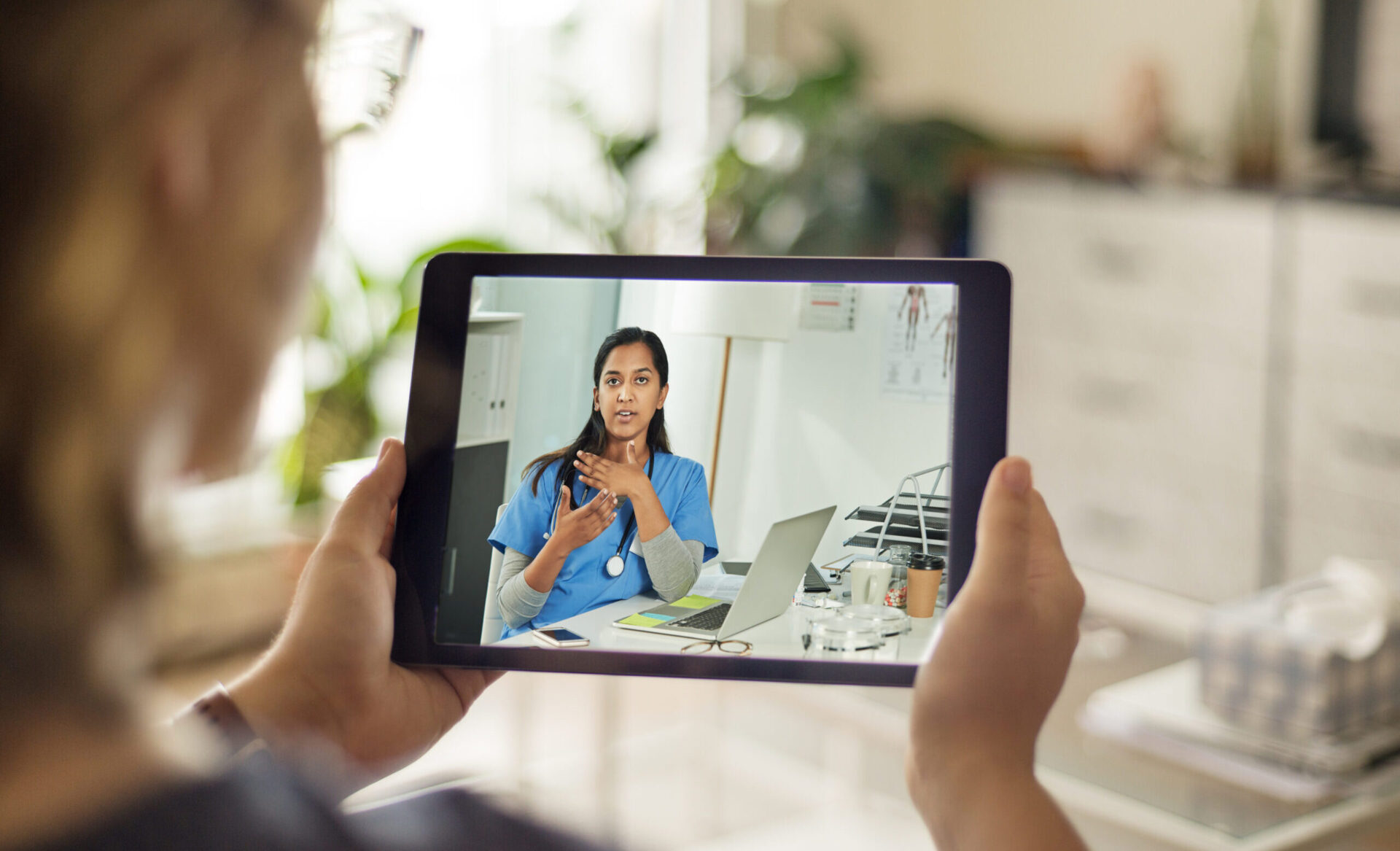
Demonstrating the Value, Safety, and Feasibility of Telehealth in Clinical Trials
- Clinical Transformation,
- Health Equity
Through value-based care analyses and focus groups, this study sought to assess value, safety, and feasibility of telehealth in clinical trials for patients with gynecologic malignancies. Findings published in Gynecologic Oncology demonstrated that telehealth and remote testing are safe to implement in clinical trials.
The use of telehealth increased rapidly and dramatically as a form of healthcare delivery at the onset of the COVID-19 pandemic. This has created opportunities to reexamine healthcare implementation, particularly when it comes to clinical trials. While telehealth has been integrated into clinical trials in behavioral health and other fields, its use in gynecologic oncology was prohibited by guidelines prior to the pandemic. As these patients are frequently immunocompromised, telehealth presented an opportunity to reduce unnecessary exposure and mitigate infection. However, the use of telehealth for these patients is compelling beyond the pandemic as it could offer options to patients for whom in-person visits are socially and financially burdensome.
A retrospective cohort study looked at patients enrolled in gynecologic oncology clinical trials at the University of Pennsylvania Health System between March and August 2020 compared to a pre-telehealth period from Sept 2019 through March 2020. They found that utilization of telehealth for these patients did not increase clinical workload, nor contribute to adverse patient outcomes. While these findings were very promising, additional evidence was needed to demonstrate feasibility, safety, and value, both to standardize this as a practice in national protocols and to support reimbursement for telehealth visits used in clinical trials.
This study performed a cost-benefit analysis to demonstrate the value of telehealth in clinical trials by examining spending based on claims data from a pre-telehealth period of September 2019 to March 2020 with a telehealth period of March 2020 to August 2020. This quantitative analysis was accompanied by a qualitative component which included conducting focus group interviews with clinical trial enrollees and chemotherapy providers to assess perceptions of acceptance of and barriers to telehealth in clinical trials. Benefits of this study include potentially changing future clinical trial protocol designs beyond the COVID-19 pandemic and reimagining healthcare delivery for ovarian and other gynecologic cancer clinical trials.
Findings published in Gynecologic Oncology showed no difference in adverse patient outcomes between the two groups, demonstrating that telehealth and remote testing are safe to implement in clinical trials. Telehealth did not impact clinical trial protocols, and should be considered for larger scale clinical trial adaptation in oncology settings. Further suggestions include the need for increased flexibility in clinical trial design and more inclusion of telehealth in clinical trials to decentralize operations. Additionally, since Medicare’s pandemic emergency coverage is set to end in December of 2024, considerations of telehealth reimbursement should be made.
Ovarian Cancer SPORE; National Cancer Institute
Project Leads
Project Team
-
Justin Bekelman
-
Nandita Mitra
-
Katharine Rendle
-
Fiona Simpkins

